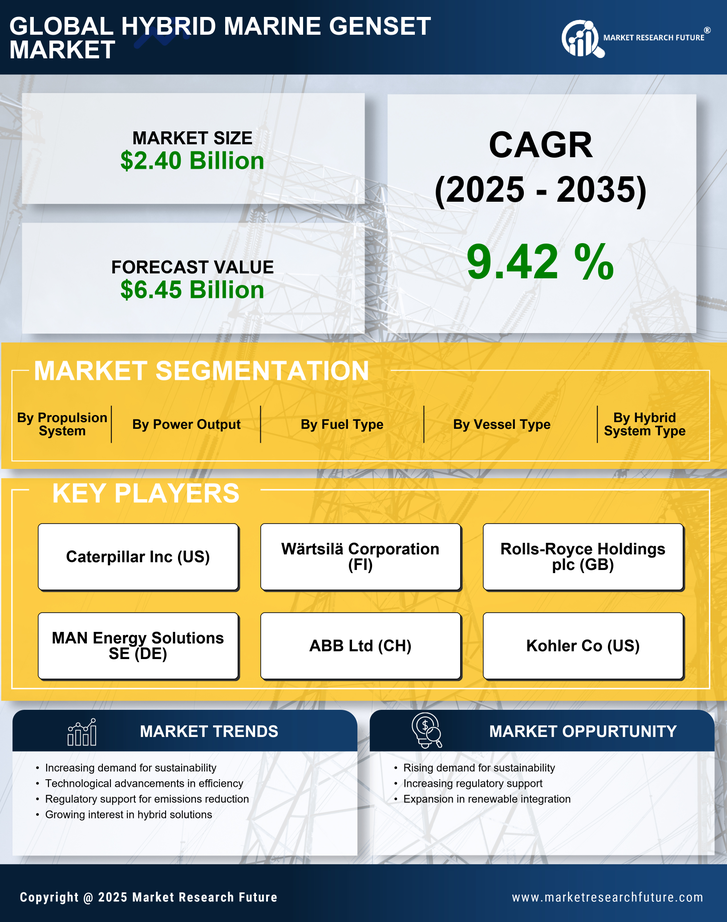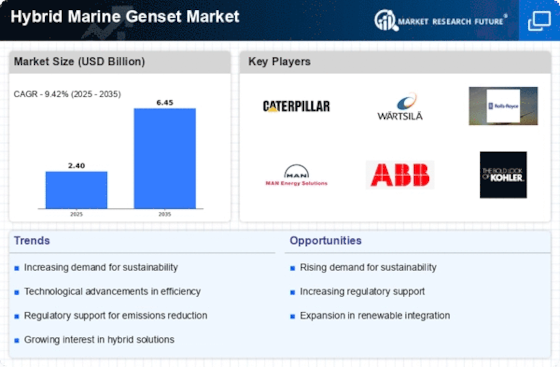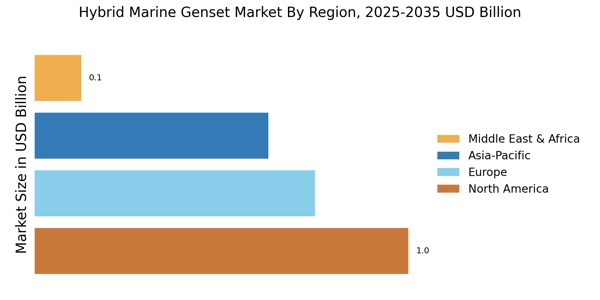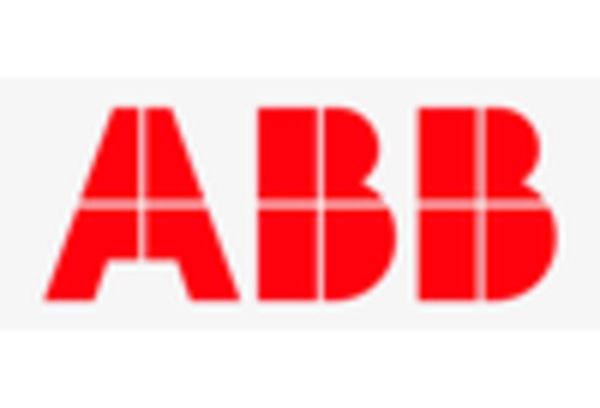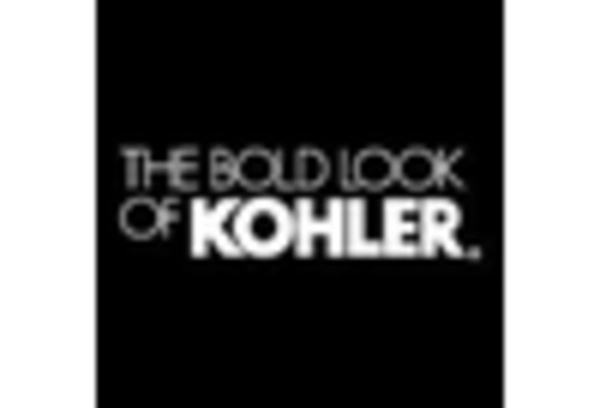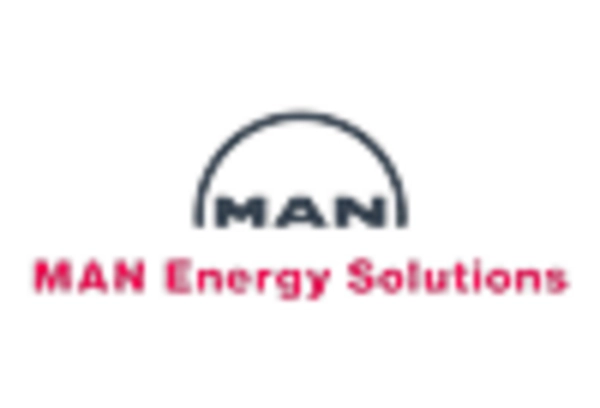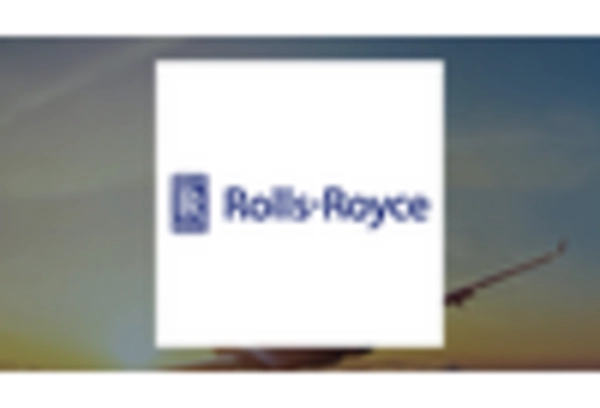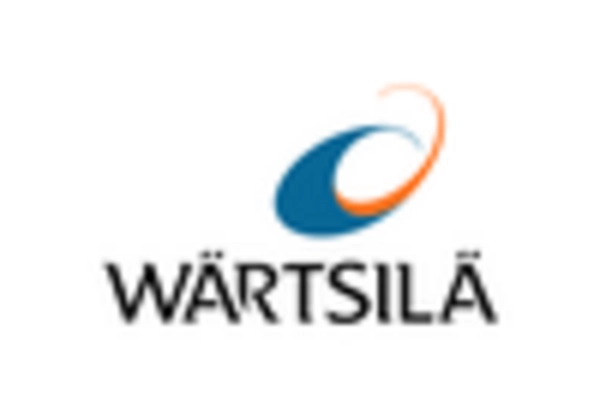The Hybrid Marine Genset Market is currently characterized by a dynamic competitive landscape, driven by increasing demand for energy-efficient and environmentally friendly solutions in marine applications. Key players such as Caterpillar Inc (US), Wärtsilä Corporation (FI), and Rolls-Royce Holdings plc (GB) are at the forefront, each adopting distinct strategies to enhance their market positioning. Caterpillar Inc (US) focuses on innovation in hybrid technology, aiming to reduce emissions and improve fuel efficiency, while Wärtsilä Corporation (FI) emphasizes digital transformation and smart marine solutions, integrating advanced analytics into their genset offerings. Rolls-Royce Holdings plc (GB) is pursuing strategic partnerships to bolster its technological capabilities, particularly in automation and remote monitoring, which collectively shape a competitive environment that prioritizes sustainability and technological advancement.
In terms of business tactics, companies are increasingly localizing manufacturing to reduce costs and enhance supply chain resilience. This approach appears to be particularly relevant in the context of geopolitical uncertainties and fluctuating trade policies. The market structure is moderately fragmented, with several players vying for market share, yet the influence of major companies remains substantial. Their collective strategies not only drive innovation but also set benchmarks for operational excellence within the industry.
In August 2025, Caterpillar Inc (US) announced the launch of its latest hybrid marine genset, which integrates advanced battery storage technology aimed at optimizing fuel consumption and reducing operational costs. This strategic move is significant as it positions Caterpillar to meet the growing regulatory demands for lower emissions in marine operations, potentially enhancing its competitive edge in a market increasingly focused on sustainability.
In September 2025, Wärtsilä Corporation (FI) unveiled a new digital platform designed to enhance the operational efficiency of marine gensets through real-time data analytics. This initiative is crucial as it not only aligns with the industry's shift towards digitalization but also enables customers to optimize their fleet management, thereby reducing downtime and operational costs. Such advancements may solidify Wärtsilä's reputation as a leader in smart marine technology.
In July 2025, Rolls-Royce Holdings plc (GB) entered into a strategic alliance with a leading technology firm to develop autonomous marine genset systems. This collaboration is indicative of the growing trend towards automation in the marine sector, suggesting that Rolls-Royce is positioning itself to capitalize on future market demands for autonomous solutions, which could redefine operational paradigms in marine energy generation.
As of October 2025, the competitive trends in the Hybrid Marine Genset Market are increasingly defined by digitalization, sustainability, and the integration of artificial intelligence. Strategic alliances are becoming more prevalent, facilitating innovation and enhancing technological capabilities across the sector. Looking ahead, it is likely that competitive differentiation will evolve from traditional price-based competition to a focus on innovation, advanced technology, and supply chain reliability, as companies strive to meet the complex demands of a rapidly changing market.
